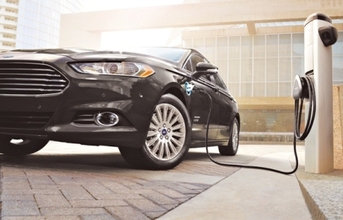
Urban impact
As the world's population grows, patterns of vehicle use and ownership are changing and mobility solutions like car sharing are becoming increasingly popular. Many of the major automotive brands are moving into this space, even though it doesn't always necessarily involve a physical automobile, but a range of transportation options. Almost half of survey respondents feel that mobility solutions can deliver a profit within the next five years.
Respondents from the TRIAD countries are the most optimistic of the potential for mobility solutions, with almost half forecasting that up to a quarter of city inhabitants will use these services by 2029—a huge increase on the survey results from 2013.
"The growing trend of autonomous driving [the self-driving car] can have a further positive impact on the development of mobility solutions," noted Meyer. "The ability to ‘order' a car to ‘arrive' when you want it, and go where you want to go may make it unnecessary to actually own the car. This could greatly contribute to the rise of mobility solutions models, perhaps eliminating the need to own a second family car."
Emerging markets
A significant majority of respondents see emerging markets as a major growth engine for the auto industry: 85 percent say that growth in the BRICs and other potentially high-growth markets is the biggest single industry trend until 2025.
"As the BRIC countries take up a greater share of the global market, auto executives face tough choices on how to expand and who to partner with, and how to respond to growing competition," said Meyer. "However, with these challenges comes massive opportunity for both manufacturers and dealers to tap into incredible long-term potential."



























